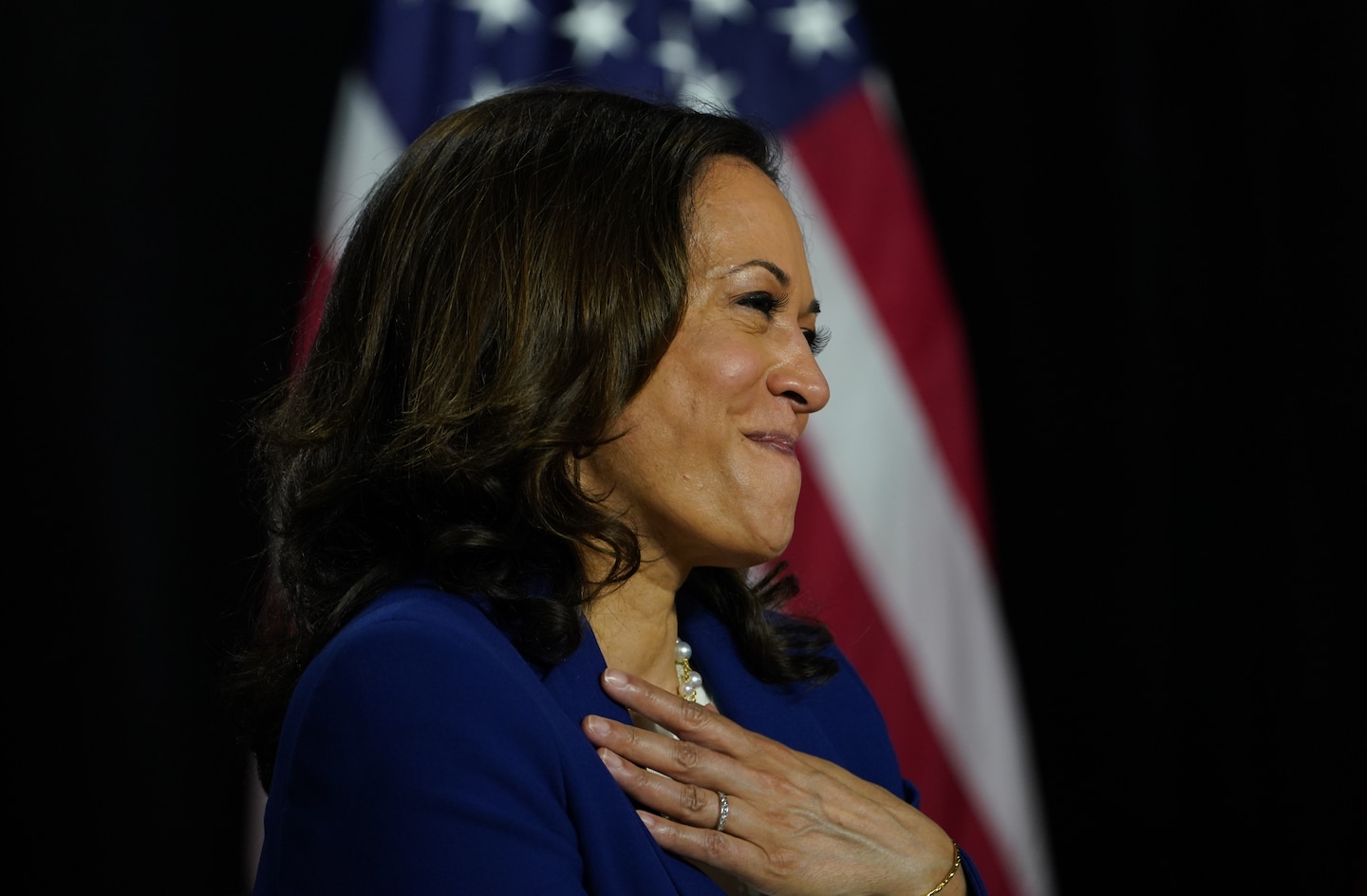Kamala Harris reminds the world why America is great

Harris reminds the world why America is great. This is the land, not of carnage, as President Trump would have it, but of opportunity. People overseas, in India and nearly everywhere else I travel, still yearn to come to America for much the same reason that Harris’s mother and father did. People can be free and prosperous here — and they can march in the streets in protest to demand their rights, as Harris and her parents did, too.
Harris’s life story interweaves the two great positive themes that animate our national life now — the “Black Lives Matter” demand for equality and justice and the immigrant yearning for security, prosperity and freedom. She complements Biden, the genial if occasionally inarticulate septuagenarian, in an uncanny way. If he’s sleepy, she’s a jolt of caffeine.
The Web audience in India was just digesting the Harris vice-presidential news when I appeared with former Indian national security adviser Shivshankar Menon at an Internet event sponsored by the Synergia Foundation. Attendees talked about the buzz of proud comments from Chennai, the birthplace of Harris’s mother, Shyamala Gopalan.
Harris provides a moving account of her experience as a Black woman and an Indian American in her 2019 memoir, “The Truths We Hold: An American Journey.” Where Barack Obama’s “Dreams From My Father” was the story of a young man struggling to understand his mixed racial identity, Harris seems to have had less doubt.
By Harris’s account, her mother embraced Black culture when she married Donald Harris, a Jamaican immigrant who became an economist at Stanford, and she continued to hold that culture tight after she and her husband divorced a few years later. Harris and her sister, Maya, grew up in Berkeley, sang in the children’s choir at a Black church, attended a Black cultural center called Rainbow Sign and dreamed as girls they would marry members of the Jackson Five. (Harris chose Tito.)
“My mother understood very well that she was raising two black daughters,” Harris writes. She recalls that she would go to civil rights marches with her mother, and when Shyamala asked what she wanted, young Kamala would shout back, “Fweedom!”
Harris’s decision to attend Howard University was a powerful affirmation, not just of her father’s identity but of the racial milieu her mother had embraced as well. African American voters may rally to Harris for many reasons, but a big one is that she chose to attend this historically Black college and become a member of its Alpha Kappa Alpha sorority. “There are a lot of AKAs who will ring doorbells for their sister,” one prominent African American businessman told me this week.
What powers Harris’s memoir (and, the reader senses, her life) was her passionate, persistent and proudly unconventional mother. Nearly every chapter includes one of her mother’s favorite sayings. “Don’t let anyone tell you who you are. You tell them who you are.” “Focus on what’s in front of you and the rest will follow.” “Hold fast to conviction.” She remembers that when she and Maya went through customs to visit her relatives abroad, her mother would advise: “Stand up straight. Don’t laugh. Don’t fidget. Have all your stuff. Be prepared.”
The book converges on the moving story of how Shyamala, a cancer researcher, succumbed to colon cancer in 2009. Harris, for all her budding ambition in California politics, was with her mother to the end. She’s convincing when she writes near the conclusion of the book: “When I am stuck with a hard decision, I ask, ‘What would Mommy think?’ ”
Harris’s strength as a vice-presidential candidate is often likened to her experience as prosecutor and attorney general in California — the intense debater who can perk up Biden’s sometimes halting syntax. But really, her job is simpler: She needs to tell her story. Just as Biden likes to describe his father getting laid off in Scranton, Pa., and reassuring his son, “Joey,” Harris should find ways to share stories about Shyamala, and of her own unique experience as a Black woman and the daughter of immigrants.
During the primary campaign, Harris came across to some people as hard-edged and anchored chiefly by ambition. Reading her memoir, you sense where that intensity comes from.
Harris’s strength is that she knows who she is. She’s not in search of an identity; it’s fixed. Her test will be how to share that self-knowledge with voters.
Read more:






